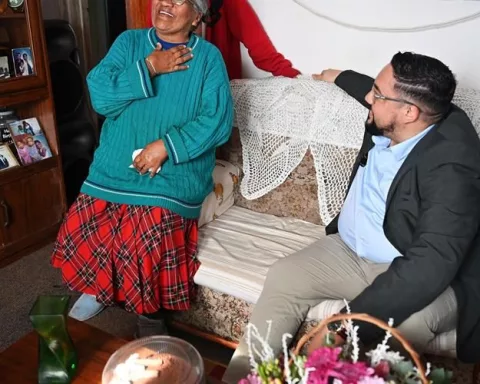South Africa is taking an active approach to addressing climate change through a national stakeholder consultation before COP28 in Dubai. The consultation aims to solidify South Africa’s stance on climate change negotiations, raise public awareness, and cultivate an inclusive approach to policymaking. By engaging with a diverse array of stakeholders and learning from international counterparts, South Africa is taking essential steps towards building a sustainable, resilient, and equitable future for its citizens.
What is South Africa’s approach to climate change?
South Africa is proactively addressing climate change by ensuring its interests are represented and its voice is heard on the global stage. The country will hold a national stakeholder consultation to solidify its stance for the climate change negotiations at COP28 while raising public awareness surrounding climate change and South Africa’s response efforts. The consultation aims to cultivate an inclusive and participatory approach to climate change policymaking in South Africa and provides an opportunity for the country to learn from other countries’ experiences in addressing climate change.
South Africa’s Proactive Approach to Climate Change
South Africa is actively addressing climate change by ensuring its interests are represented and its voice is heard on the global stage. With the 28th Conference of Parties (COP28) to the United Nations Framework Convention on Climate Change (UNFCCC) on the horizon, Minister of Forestry, Fisheries, and the Environment, Ms. Barbara Creecy, and the Presidential Climate Commission (PCC) will hold a national stakeholder consultation on October 26, 2023, before the worldwide climate discussions in Dubai.
Taking place from November 30 to December 12, 2023, in Dubai, United Arab Emirates, COP28 is a significant gathering of national representatives and experts from around the globe who will negotiate and discuss strategies for tackling climate change. South Africa’s involvement in this event is crucial because the country has been heavily impacted by climate change, including recurring droughts, flooding, and biodiversity loss.
Objectives of the National Stakeholder Consultation
The national stakeholder consultation aims to accomplish several objectives. First, it seeks to solidify South Africa’s stance for the climate change negotiations at COP28. This involves pinpointing the country’s priorities, challenges, and opportunities regarding climate change mitigation and adaptation and crafting a coherent and persuasive message to convey to the international community.
The second objective of the consultation is to provide information and updates on the status of the international negotiations within the UNFCCC. By doing so, it ensures that South African stakeholders are well-versed in the context of COP28, enabling them to contribute effectively to the event’s discussions and deliberations.
Lastly, the consultation aims to raise public awareness surrounding climate change and South Africa’s response efforts. As a nation heavily reliant on fossil fuels for its energy needs, South Africa faces considerable challenges in transitioning to a low-carbon economy. Public comprehension and support for climate change mitigation and adaptation measures are vital for successful implementation.
Inclusivity and Learning from Others
The consultation will take place at the Women’s Jail, Constitutional Hill, Johannesburg, and media members are invited to attend. By engaging with a diverse array of stakeholders, including government representatives, academics, business leaders, civil society organizations, and ordinary citizens, the consultation seeks to cultivate an inclusive and participatory approach to climate change policymaking in South Africa.
This event also presents an opportunity for South Africa to learn from other countries’ experiences in addressing climate change. By exchanging ideas, best practices, and lessons learned with international counterparts, South African stakeholders can identify and adopt innovative and effective strategies for battling climate change.
In addition, the consultation will support South Africa’s ongoing efforts to implement its Nationally Determined Contributions (NDCs) under the Paris Agreement. The NDCs detail the country’s commitments to reducing greenhouse gas emissions, adapting to climate change impacts, and building resilience in key sectors such as agriculture, water, and energy. Fulfilling these commitments is essential for South Africa to meet its international obligations and contribute to the global effort to limit the average global temperature rise to well below 2°C above preindustrial levels.
Impact and Significance of the Consultation
The national stakeholder consultation signifies an important milestone in South Africa’s climate change journey. It demonstrates the country’s commitment to addressing the existential threat posed by climate change and building a sustainable, resilient, and equitable future for all its citizens.
As the world contends with the unparalleled challenges presented by climate change, South Africa’s efforts to engage with stakeholders and prepare for COP28 serve as an exemplary model of proactive, inclusive, and accountable governance. The outcomes of this consultation will undoubtedly have a profound effect on South Africa’s climate change policies and actions, and by extension, on the well-being of its people and the environment in which they live.
In summary, the national stakeholder consultation is not only an integral part of South Africa’s preparations for COP28, but it is also a critical component of the country’s wider climate change policy landscape. By engaging with stakeholders and fostering an inclusive, participatory approach to climate change decision-making, South Africa is taking essential steps towards building a sustainable, resilient, and equitable future for its citizens.
1. What is South Africa’s approach to climate change?
South Africa is proactively addressing climate change by ensuring its interests are represented and its voice is heard on the global stage. The country will hold a national stakeholder consultation to solidify its stance for the climate change negotiations at COP28 while raising public awareness surrounding climate change and South Africa’s response efforts.
2. What is the purpose of the national stakeholder consultation?
The national stakeholder consultation aims to accomplish several objectives. First, it seeks to solidify South Africa’s stance for the climate change negotiations at COP28. Second, it provides information and updates on the status of the international negotiations within the UNFCCC. Lastly, the consultation aims to raise public awareness surrounding climate change and South Africa’s response efforts.
3. When will the national stakeholder consultation take place?
The national stakeholder consultation will take place on October 26, 2023, before the worldwide climate discussions in Dubai.
4. What is COP28?
COP28 is the 28th Conference of Parties (COP28) to the United Nations Framework Convention on Climate Change (UNFCCC). It is a significant gathering of national representatives and experts from around the globe who will negotiate and discuss strategies for tackling climate change.
5. Why is South Africa’s involvement in COP28 crucial?
South Africa’s involvement in COP28 is crucial because the country has been heavily impacted by climate change, including recurring droughts, flooding, and biodiversity loss.
6. Who will be invited to the national stakeholder consultation?
The consultation will engage with a diverse array of stakeholders, including government representatives, academics, business leaders, civil society organizations, and ordinary citizens.
7. What is South Africa’s commitment to reducing greenhouse gas emissions?
South Africa is committed to reducing greenhouse gas emissions through its Nationally Determined Contributions (NDCs) under the Paris Agreement. The NDCs detail the country’s commitments to reducing greenhouse gas emissions, adapting to climate change impacts, and building resilience in key sectors such as agriculture, water, and energy.
8. What is the significance of the national stakeholder consultation?
The national stakeholder consultation signifies an important milestone in South Africa’s climate change journey. It demonstrates the country’s commitment to addressing the existential threat posed by climate change and building a sustainable, resilient, and equitable future for all its citizens.








